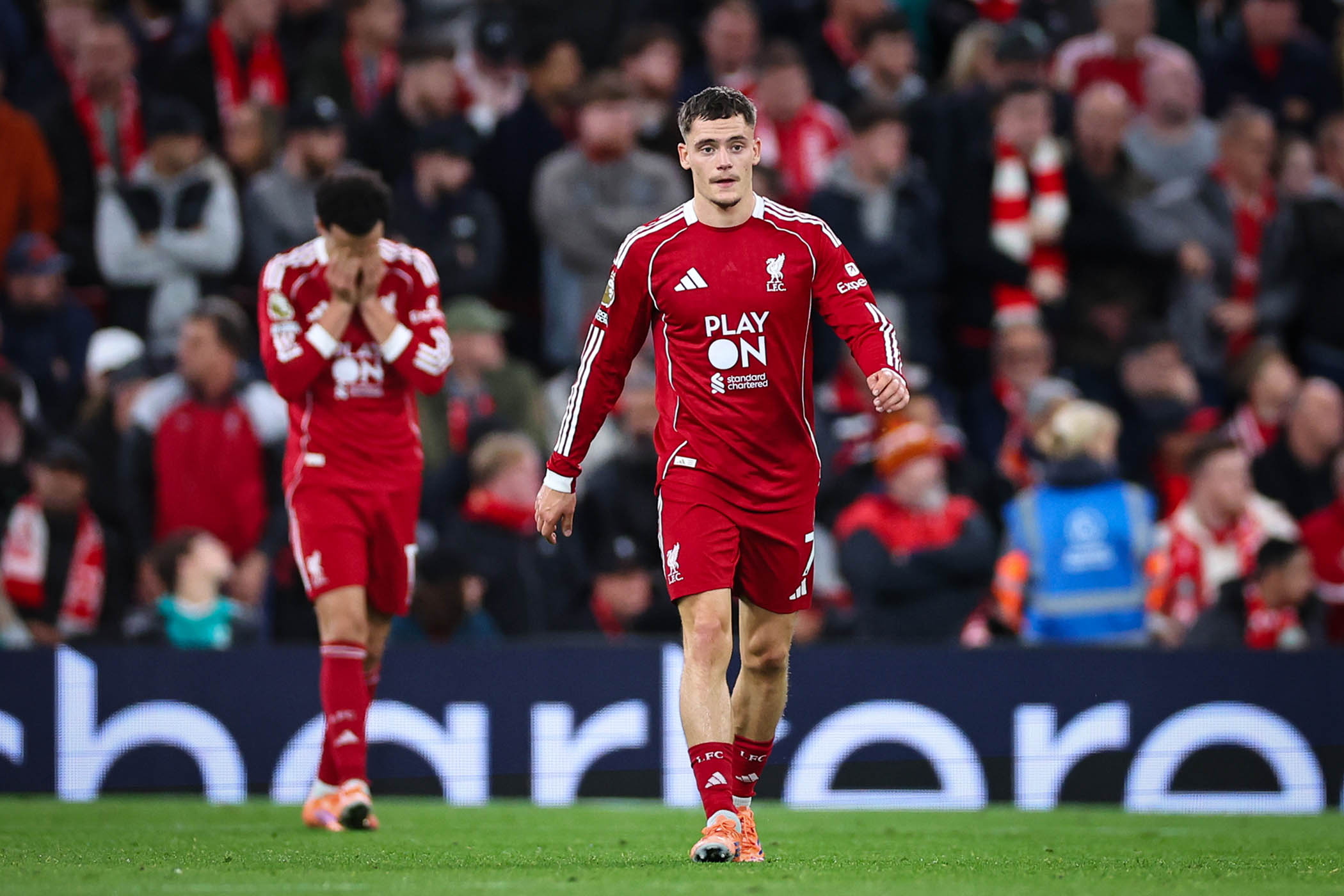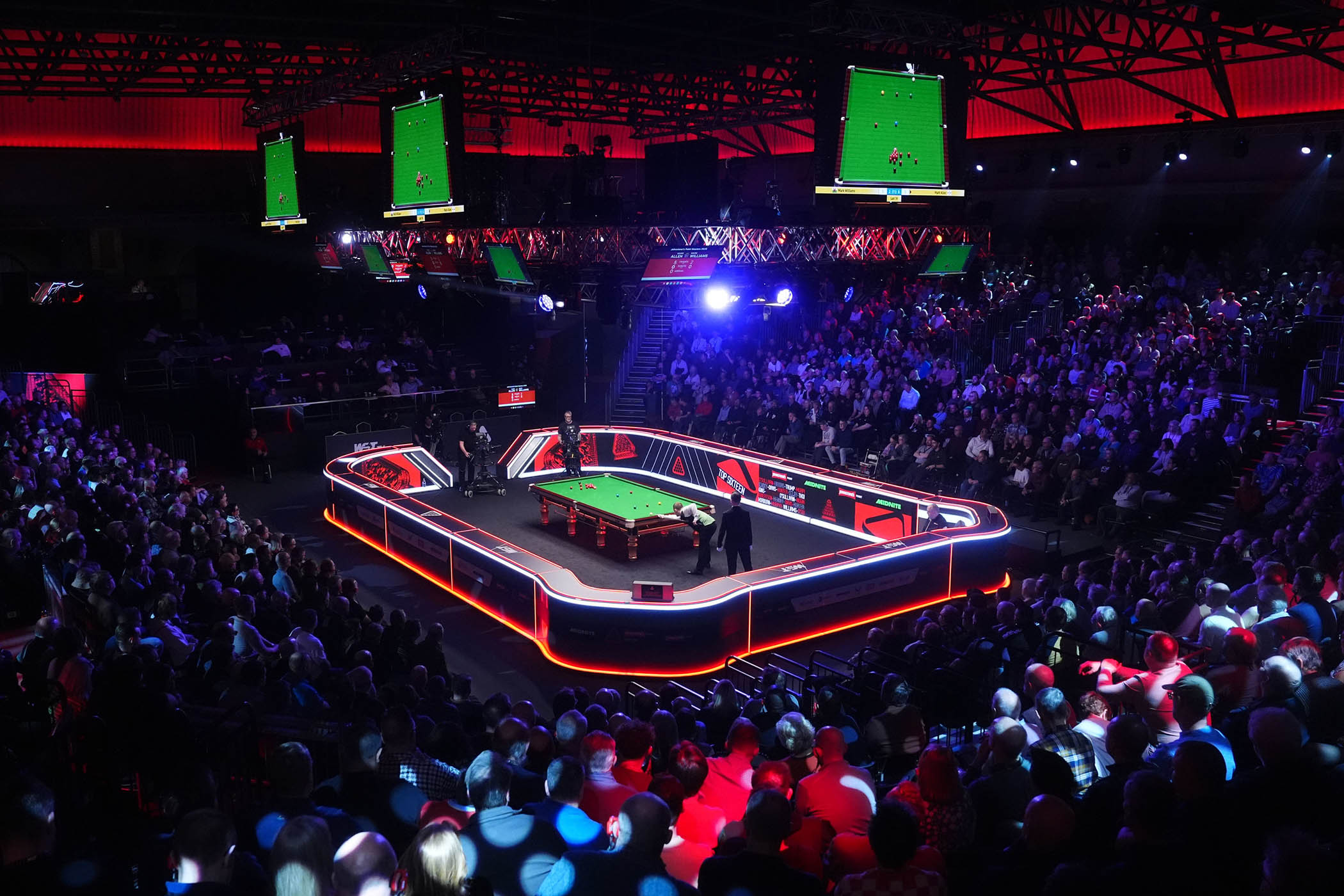Arne Slot, like every other Premier League manager these days, is a man of science.
He spends his professional life awash with data: saliva tests and expected goals and nutrition intake and high-intensity sprint load. He talks about processes and habits and systems. He may not use the phrase, tarnished as it has become, but he thinks about marginal gains.
The Liverpool manager, in this, is fairly typical. This is football’s age of empiricism. So complete has been the data revolution of the last two decades or so that the game prizes that which is provable above almost anything else. It has moved beyond superstition. Or at least that is the theory. Football, on some level, still believes in alchemy.
A couple of days before Manchester United silenced Anfield, Slot had expressed a sort of vague hope that the scale of the occasion might snap Liverpool out of their sudden malaise. The champions had, prior to the international break, lost three games in a row, conceding late winners at Crystal Palace and Chelsea and limping to defeat against Galatasaray.
The way out of that recent downturn in the long-term, Slot was clear, was all the stuff that he has always preached: doing the right things, making the right decisions, repeating the right patterns. He hoped, though, that United would prove to be a catalyst: English football’s marquee fixture could, he said, provide something of a “spark” for both his players and the club’s fans.
This is a version of one of the game’s bedrock folk beliefs, its inherited ancient wisdoms, the myths that still permeate the way we all think about the game, whether we want to admit it or not: that the thing a team needs after a defeat is to get back out there as soon as possible; that the form book goes out of the window in a derby; that sometimes a really big game is just what the doctor ordered.
It did not, of course, work out like that. The discourse around the Premier League is now so unforgiving that it has been received as mealy-mouthed excuse making, but Slot is not entirely wrong to suggest that the difference between Liverpool’s unbeaten run a month ago and their slump is not as wide as it might at first glance appear.
Had Cody Gakpo not hit the post three times against United, had Andy Robertson made it back half a second quicker against Chelsea, had Jeremie Frimpong not rolled the dice against Crystal Palace, Liverpool’s season would not be markedly different – three more points and a couple of places in the nascent, tightly-packed league table – but it would feel a world apart. The margins have been fine.
Related articles:
The problem is that it is perfectly possible to make precisely the opposite argument. Liverpool beat Bournemouth because the ball fell by sheer chance to Federico Chiesa. Hannibal Mejbri presented them with a penalty at Burnley. In both good times and bad, this season, they have conceded an abundance of chances and either created or finished very few. Their expensive new signings have failed to adjust, Hugo Ekitike apart; with the exception of Dominik Szoboszlai, more established heroes look inhibited, etiolated.
The explanations for that are many and varied. Maybe the signings do not suit each other. Maybe there are too many of them. Maybe there are too many of them in the team all at once. Maybe it was a mistake to move away from the new system. Maybe all of those are true. Maybe all of those are only true because the players and the club are – although they will not mention it – confronting an enduring grief at the loss of Diogo Jota.
Newsletters
Choose the newsletters you want to receive
View more
For information about how The Observer protects your data, read our Privacy Policy
Regardless, the effect is the same: the effortlessly smooth machine that led Slot to the Premier League title in his first season in England has juddered to such a resounding halt that he has had to resort to trusting to luck: throwing endless attackers onto the field in the hope that something might happen; sticking Virgil Van Dijk upfront; wondering if the mere sight of Manchester United might jolt his players back to themselves.
None of it has worked, of course; more worrying is the sense that it is not entirely clear how Slot might realistically resolve it. The modern Premier League does not allow for time on the training pitch. It is not a conducive environment for allowing players to build the delicate bonds that turn a collection of individuals into a coherent team. We know that because, for all that Liverpool’s travails seem urgent and new, we have seen this before.
Not an exact replica, admittedly, but something similar enough to have a general impression of how this might play out. The circumstances of Liverpool’s collapses in 2020/21 and 22/23, Manchester City’s last season, and Chelsea’s under first José Mourinho and then Antonio Conte were all different.
Jürgen Klopp’s championship-winning side, like Pep Guardiola’s team, were essentially undermined by injury. “The main, main reason is having seven, eight important injured players,” Guardiola said in the midst of his side’s funk last year. That is too straightforward an explanation to be easily accepted – content has to be produced, after all – but it was likely the most significant element. In his penultimate season, meanwhile, Klopp’s greatest issue seemed to be cumulative fatigue.
That may have been a factor at Stamford Bridge, too, in those campaigns which ultimately ensured Mourinho and Conte’s time at Chelsea would come to an end. Both followed title wins; both were marked by a psychological exhaustion, a sense that the players had no more to give mentally, as much as a physical one.
That this keeps happening – that, in fact, Guardiola’s imperial-phase City teams are the only exception in the last decade of the Premier League – indicates that what Slot, and Liverpool, are currently enduring is part of a pattern, regardless of the exact specifics of their ailments.
Any team that can win the title is an exceptionally delicate thing, comprising thousands of perfectly-calibrated components, all of them documented in football’s era of science and reason. It requires only one or two of them – the chemistry of the dressing room, a barely perceptible dip in form from one or two players, the loss of a central midfield cog, the departure of a right-back – to change for the consequences to be widespread and severe, metastasising to affect the whole team.
None of it is irreversible, obviously. Slot was right, after United’s victory, to suggest that Liverpool do not need to do too much differently to “win football games again.”
But nor is that quite as simple as he makes it sound. Fine-tuning a team requires a level of detail and patience that is hard to muster when there is a game every three days, when the physical load is so intense, when every fixture brings a new and specific challenge. Chelsea finished tenth and fifth in their Mourinho and Conte seasons, respectively. Klopp missed out on the Champions League. Guardiola required months to restore his City side, arguably the most dominant the league has ever seen, to even a diminished version of itself.
The job of starting the engine again is fiendishly complex. Little wonder Slot is inclined, despite everything he knows, to just a little magical thinking.
Photograph by Robbie Jay Barratt – AMA/Getty Images



